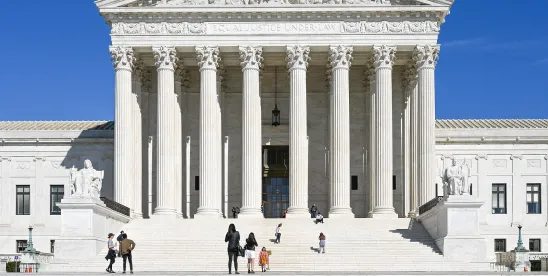On July 16, in response to the Court’s decision, NLRB General Counsel (GC) Jennifer Abruzzo released General Counsel Memorandum 24-05, which states that the NLRB will continue to “aggressively seek … injunctions” to preserve the status quo in ULP cases.
As discussed previously, the Supreme Court now requires courts to apply a traditional four-factor test when evaluating requests for Section 10(j) injunctive relief. This includes a demonstration of:
- A likelihood of success on the merits.
- Irreparable harm in the absence of preliminary relief.
- The balance of equities tipping in favor of preliminary relief.
- An injunction being in the public interest.
The Court adopted this test, which is less deferential than the alternative used by some circuits, in order to grant less deference to the NLRB’s view of the law, fact, and equities of the case.
In her Memo, GC Abruzzo noted that several circuits had already applied the four-factor test, and that the NLRB had experienced a “high rate of success” in those circuits, equivalent to or higher than in circuits applying more deferential standards. GC Abruzzo also emphasized the importance of Section 10(j) injunctive relief as a tool to protect employee rights and stated that the NLRB would continue to carefully weigh the facts and law of each case before moving for such relief. Finally, she noted that her office would continue to apply “further guidance on an ongoing basis” to ensure that the NLRB could continue to successfully pursue such injunctions in ULP proceedings.
Impact on Employers
Whether the Supreme Court’s decision in Starbucks will impact the success rate of the NLRB in pursuing injunctive relief remains an open question. As GC Abruzzo observed, many circuits already employ the four-factor test, and the NLRB has had some success under that standard. Regardless, employers should be aware that GC Abruzzo is not publicly modifying her aggressive approach to Section 10(j) injunctive relief.




 />i
/>i

